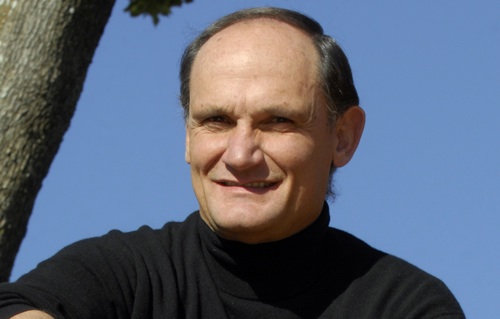
Former Vodacom Group CEO Alan Knott-Craig is giving serious thought to returning to the telecommunications industry when his restraints of trade with his former employer come to an end early next year.
Knott-Craig tells TechCentral that is he “hoping to work in the sector again” and is keen to get involved in projects that will deliver faster and cheaper broadband to SA consumers.
“I have set aside this next year to plan on doing something in the sector, if not in SA, then elsewhere,” he says. “But SA remains first prize.”
According to Vodacom’s 2010 annual report, Knott-Craig was restrained from working in the telecoms sector until 31 March 2011. But Knott-Craig says all of his restraints expire only at the end of March 2012 — just less than a year from now.
According to Vodacom, Knott-Craig was paid an amount of R5m to restrain him from working for or advising competitors in the telecoms industry. Included in the amount was payment for any advice and assistance requested by his successor, Pieter Uys.
Knott-Craig says he’d like to become involved in broadband in a role where is he able to make it available to “every South African at very affordable prices and at speeds which make it convenient”.
“Speeds in excess of at least 100Mbit/s to every end point, and prices that make using data at those speeds affordable, should be the immediate goal for 2012/13,” Knott-Craig says.
“The higher the speed, the lower the price per gigabyte [should be]. If the speed is 10 times higher, the price should be 10 times lower to be affordable.”
Knott-Craig isn’t giving much away about his plans, but he says he’d like to play a role in building fibre-optic and wireless broadband infrastructure.
He says government’s role will be critical if the country is to achieve lower prices. “Consolidation will be inevitable to achieve better economies of scale. That means more spectrum to fewer licensees for the last mile and more cooperation from local authorities to facilitate the laying of fibre between and in metros and towns,” Knott-Craig says.
“It also means that unused spectrum must be identified and returned for use by operators with the capacity and resources to use it. A strong hand by government will be needed to achieve the last task. Use it or lose it must be the mantra for spectrum.”
He says operators need more spectrum, more fibre must be put in the ground, and consolidation must occur to drive the industry forward. “Telecoms is all set to become sexy again,” he says. — Duncan McLeod, TechCentral
- Subscribe to our free daily newsletter
- Follow us on Twitter or on Facebook




